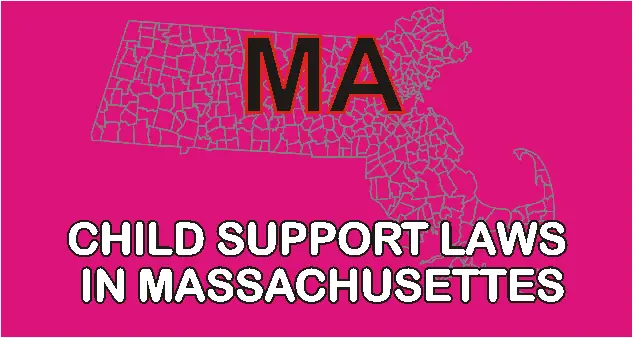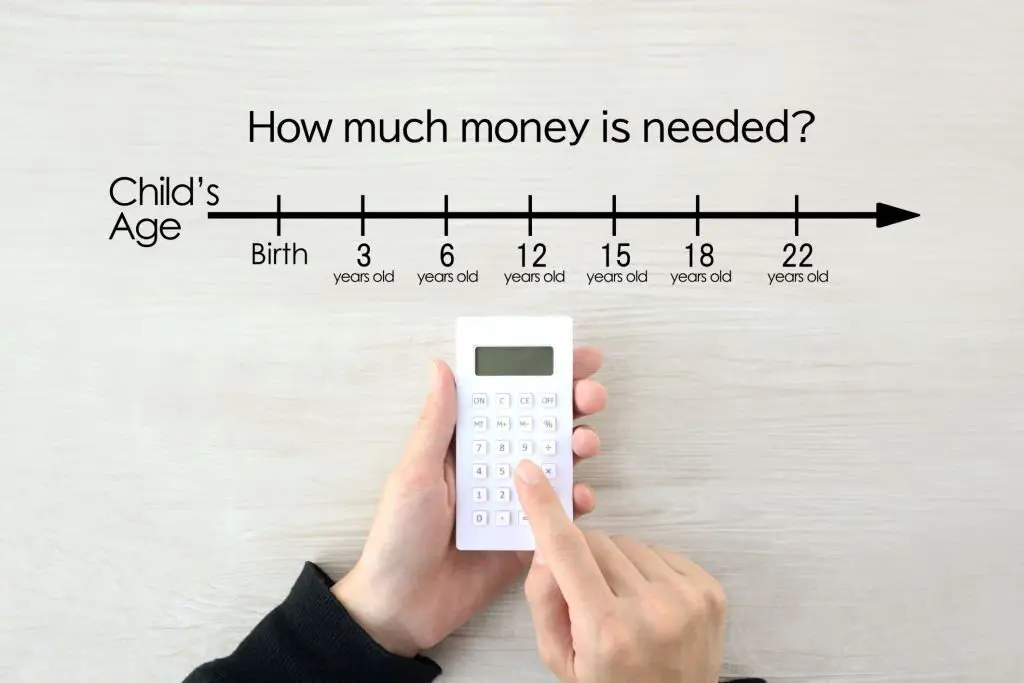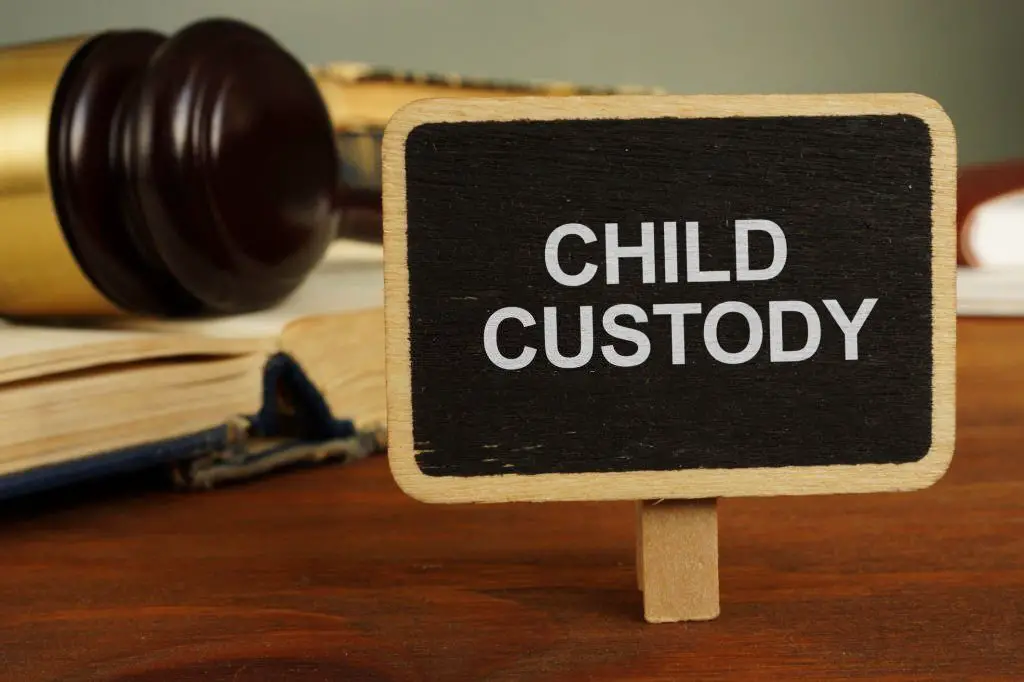
The laws governing child support in Massachusetts are different from that of other states. MA child support law sets how much the child maintenance should be, and the duration of such payments, plus it seeks to guide parents in exceptional cases such as deviation, support for disabled children, and retroactive support.
As you may already know, child support (or child maintenance) is a continuous monetary payment made by a spouse to another spouse, guardian, caregiver, or the state for the upkeep of children after a divorce or separation.
The person who is required to pay child support is referred to as the “obligor,” whereas the person who is eligible to receive child maintenance is referred to as the “obligee.”
What are The New MA Child Support Laws?
The 2020–2021 Massachusetts Trial Court Child Support Rules Task Force conducted a thorough assessment before the new Massachusetts child support guidelines went into effect on October 4, 2021. Five major areas of change are highlighted in the revised Guidelines:
1. The minimum order is now $12 per week for Payors with incomes up to $210 per week, down from the prior minimum purchase of $25 per week for Payors with incomes up to $115 per week. The order is now between $12 and $20 per week for payors who earn between $211 and $249 per week. Additionally, the Court now has the option to impose “$0” orders.
2. As opposed to the previous $250,000 or $4,807 per week, the Guidelines now presume to apply to the first $400,000 ($7,692 per week) of the parents’ “total available incomes.” It hasn’t increased this much since 2009.
3. The previous 15 percent cap on applicable charges has been eliminated, but the entire costs of health insurance paid by either party are still a deduction before assessing available income.
4. The multiplicating factors for families with multiple children now range from 1.40 for two children to 1.94 for five children, which will result in large increases over earlier orders. Families with combined available earnings between $250 and $7,692 per week and only one child are not anticipated to be significantly impacted by this move.
5. Regardless of who pays the bill, the parents now equally split the cost of child care. A presumptive shared ceiling of $355 per week per child applies, and it is based on a 2018 report from the Massachusetts Department of Education. The expenses incurred, it should be noted, must be reasonable and either related to finding gainful employment or reasonably required for education, training or increased earning potential. The 2011 Alimony Reform Act’s (effective March 2012) objective of promoting re-entry into employment is also congruent with this move.
What does Child Support Cover in Massachusetts?
Child support payments in MA are meant to cover financial support (clothes, food, and shelter), health insurance, and costs associated with basic education. Extracurricular activities, extraordinary medical costs, visitation travel expenses, and child care fees could also be included.
Child Support When One Parent Lives Outside Massachusetts
To enforce child support orders beyond state boundaries, each state has to have the Uniform Interstate Family Support Act (UIFSA) in place. Massachusetts is no exception.
The UIFSA ensures that child support processes and procedures are consistent across states. When one spouse lives in another state where the Massachusetts courts do not have authority to adjudicate or enforce orders, UIFSA reduces these bottlenecks.
As a result of the UIFSA, a MA child support attorney can take legal action against a spouse who now lives in another state to enforce a child support order.
How is Child Maintenance Calculated In Massachusetts?

Learn How Child Maintenance Calculated In Massachusetts
To calculate child maintenance, Massachusetts uses the Income Shares Model. The amount of child support is determined by summing up the combined incomes of the parents and dividing it equally between them.
In other words, if the parents make $6,500 and $3,500 per month, respectively, then their corresponding proportional support responsibilities are 65 and 35 percent.
If it is in the child’s best interest and the parents can afford it, the court may order that the cost of extracurricular activities, such as summer camp or private school, be shared by the parents. Mass. General Laws ch. 208, section 28 (2020).
Applying Parenting Time
Depending on how the parents divide custody or parenting time, the standards employ different formulas. There is a general formula for calculating payments, but it is predicated on the idea that the child lives with one parent most of the time and sees the other parent around one-third of the time.
Even with 50/50 custody, you can still have to pay child support. Child support is determined by first running the computation with one parent as the primary caretaker, then with the other parent as the primary caretaker, in a shared physical custody agreement (50/50).
The court may raise the amount of support if the non-residential parent receives less than one-third of the parenting time.
Each parent is required to complete the child support worksheet in cases where the parents have nearly equal custody and visiting rights.
The difference between the two amounts is paid to the parent who receives the smaller weekly support payment. The difference of $100 is paid by Parent A to Parent B, for instance, if Parent A’s weekly support payment is $500 and Parent B’s is $400.
Massachusetts Child Support Calculator and Worksheet
While a child support calculator can be used to estimate child support, it is not a guarantee of the final amount of child maintenance that the judge will order. A child support worksheet is a form used by the MA courts (or negotiating spouses) to approximate the basic child support obligation of the parents.
Regardless of which approach you use, spouses can decide on a child support sum and amend the worksheet accordingly to ensure it accurately reflects their agreement. Both establish a presumption duty to pay child support.
The final decision on the amount of child support is made by the administrative law judge, administrator, or court.
Gross Income Included in Calculating Child Maintenance
For child support calculation purposes, gross income includes:
- all wages and salary, including commissions, military pay, tips, overtime, and bonuses
- self-employment income
- interest and dividends
- net rental income from property the parent owns
Even jobless parents are likely to have some sources of income, like:
- severance pay
- unemployment benefits
- retirement benefits
- veterans’ benefits
- disability benefits, or
- workers’ compensation awards.
A MA family court judge may also allocate an income value to parents who do not currently have income-earning employment (like a second house). If a jobless parent inherits assets that can be sold, for instance, the judge may include the property’s market value as a part of such parent’s income.
Where parents willfully go unemployed or underemployed in order to avoid paying child support, judges may infer (assign) income based on what they are supposed to be earning.
Net Income for MA Guidelines

How to determine Net Income for MA child support
Remove the following costs from the total gross income to get the parent’s net income for paying child support in Massachusetts:
- Social Security taxes, or any mandated retirement plan contributions if the parent does not pay those taxes.
- Income taxes, both federal and state (based on the tax rate for a single person claiming one exemption)
- union dues
- The MA court has ruled the parent to pay the child’s health and dental insurance premiums, as well as additional medical bills.
Parents who have already paid child support for another kid or children (from a previous relationship) may be eligible for a refund.
Is Medical Health Insurance Part of Child Support in Massachusetts?

Medical Health Insurance and Child Support in Massachusetts
Yes, in addition to the amount of support determined by the guidelines in Massachusetts, the parents will be responsible for the child’s health and dental insurance.
Whereas the noncustodial parent is presumed to provide coverage, this can readily be transferred to the other parent if it makes good sense.
For instance, suppose the custodial parent’s employer offers healthcare insurance for the dependent but the noncustodial parent does not.
Factors Massachusetts Courts Consider Before Ordering Maintenance
The following factors must be considered by the court when determining whether Massachusetts Family Code applies:
- The age of the child and needs; the parents’ ability to assist
- Financial resources available to the child
- For a set period of time, you have custody and access to a child.
- An increase or decrease in the obligee’s earnings or income due to the obligee’s property and assets
- Child care expenses incurred by either parent in order to keep a job
- any other children under the care of either party
- Any other children under the care of either party
- What kind of alimony or spousal maintenance is being paid or received;
- Obligor or obligee receives an automobile, house, or other benefits from his or her employer or business entity.
- The parties or the child’s special education, health-care, or other expenses
- The cost of traveling to obtain custody of and access to a child.
- Cash flow from any estate and assets, including real estate, personal property, and business property, can be positive or negative.
How to Challenge or Modify Child Support Order
- Visit the court where the child support order was issued.
- Check the box that reads, “There is now a difference between the amount of the existing child support order and the amount that would result from application of the Child Support Guidelines issued by the Chief Justice for Administration and Management,” when filling out a Complaint for Modification form.
- Additionally, mark the box next to “the following change(s) in circumstance have occurred:” Please note any alterations to your or the other parent’s financial circumstances since the previous child support order.
- Bring the form to the court clerk so they can issue you a “Summons.”
- Bring the documents to a constable or deputy sheriff who will hand them off to the other parent. Await them to send you the summons back.
- Bring all the paperwork to the court clerk, along with a copy of the original summons that has been signed for your records.
- Set a hearing date on the court calendar.
- Send a copy of the Financial Statement form to the other parent after completing it. Make sure you use pink paper for your financial statement.
- Send the other parent a blank Financial Statement form. Include a letter requesting that the other parent complete the form and send you a copy.
- Attend court on the day that your hearing is scheduled. Bring all of your documentation with you.
Steps to Collect Child Support in Massachusetts

Steps to Collect Child Support in Massachusetts
Getting a child support order in place is only half the struggle in Massachusetts. You’ll also have to collect the money itself. A noncustodial parent is responsible for paying the full amount of child maintenance per month as imposed by the court. Here are the steps for getting child support in MA
1. Open a Child Support Case
Complete a child support application with your local child support agency/office
2. Locate the Other Parent
To begin the child maintenance procedure in MA, the child support services (CSS) office will use the information provided by the applying parent, as well as information gathered from other sources, to try to locate the other parent.
3. Establish Parentage
It’s critical to establish a legitimate relationship with the child when the other parent has been located. The state will assist you in locating the sufficient means. Parents can choose to acknowledge their parentage voluntarily or organize a genetic screening.
4. Establish a Child Support Order
A Massachusetts child support order specifies how much the other parent should pay and includes details such as the payment schedule and provisions for the child’s health insurance.
5. Set Up Payment
Deducting child maintenance from a parent’s paycheck and transferring the money to the other parent or guardian is the most typical method of payment. It’s a simple way to make and track child support payments.
6. Enforce the Support Order
Your MA child support services will enforce the child support order if the noncustodial parent does not pay the full amount or does not pay any. Exposing overdue child support payments to credit bureaus, intercepting income tax refunds, and Withholding child maintenance from unemployment or worker’s compensation benefits are examples of other enforcement measures.
7. Review the Order
Three years after the order is issued, either parent can request their local child support office to revise it. They can ask for a reassessment sooner than three years if a parent’s situation has changed significantly, such as loss of employment or imprisonment.
Massachusetts Child Support Services Office, Number and Login Portal
Massachusetts Department of Revenue Child Support Enforcement Division (CSE)
Address: 100 Cambridge St,
Boston, MA 02114,
United States
Phone: +1 617-626-2700
Website: https://www.mass.gov/locations/metro-regional-office-boston
Retroactive Child Support Arrears
The Massachusetts DOR may pursue the parent due to pay child support at any point in the future, regardless of the kid’s date of emancipation, as the state has no statute of limitations.
Unless you have paid the statutory minimum monthly payment, interest and penalties are assessed on the entire amount of past-due support owing on the last day of each month in cases where you owe more than $500.
Included in this is any support that was owed that month but wasn’t paid. We never add interest or penalties to those that have already been applied in previous months.
In Massachusetts, the Family Court Judges and the Child Support Enforcement Department (CSE) have created a set of rules for collecting money from parents who owe past-due child support payments, or what is popularly known as “arrears”:
- Among other penalties, when CSE refers a case to the US State Department due to arrears of more than $2,500, the paying parent’s passport is automatically restricted, revoked, or denied.
- Additionally, CSE has the right to take money from Worker’s Compensation and unemployment benefits that the paying parent would have otherwise received.
If you feel the arrears are being demanded wrongly, you can learn how to get child support arrears dismissed HERE.
How to Pay Child Maintenance in Massachusetts
In Massachusetts, parents can pay child maintenance in a variety of ways, as long as your order doesn’t state otherwise:
- by debit or credit card,
- mail,
- check
- bank transfer
- direct deposit
- income withholding, or
- auto-draft from a bank account.
How to Check your Child Support Payment History in MA

How to Check Child Support Payment History in MA
When there are disagreements between the parents and a need to confirm how much money is owed, child support payment records are extremely beneficial.
For complete details on where and how to check your child support Payment history in Massachusetts, click here.
Ending Child Support in Massachusetts?
In general, child support is paid up until the age of 18. If a child stays with a parent and is mostly reliant on them for support and the youngster meets specific criteria, the court may order payments to continue until the child is 21.
If the child is engaged full-time in a college, university, or another post-secondary education program, the court may also decide to prolong the child support obligation until the child turns 23. The judge will use his or her own judgment to decide.
The non-custodial parent may still be compelled to pay child support to the custodial parent if a child over the age of 23 has a mental or physical condition that makes the youngster reliant upon his or her parents.
When Can Child Support End?
If a child no longer resides with the parent who is paying for child support or when they are no longer financially dependent, child support is terminated. If both parents concur that one shouldn’t continue to pay it, it can likewise come to an end.
Is it possible to end child support early?
Parents may go to a family court and ask for a modification from a judge if they can agree that child support should terminate. In the end, the courts will determine whether child support can be discontinued or adjusted based on what they determine to be best for the kid.

Understanding Custody Rights of a Child in Massachusetts
How Does MA Child Support Work if one Parent Has no Job?
Because child support is determined by each parent’s income, it may be less than it otherwise would be if one parent is unemployed or underemployed and does not earn any money. When this is the case, income may be imputed or attributed to the parent without a job.
The court may increase the party’s income amount through income imputation, maybe as a result of undeclared income.
When a party is found to be earning less than they reasonably might, the court will consider earning potential rather than actual earnings when determining child support. This is known as income attribution.
Is Child Support Tax Deductible in Massachusetts?
NO. In Massachusetts, child support payments are neither taxable to the recipient nor tax-deductible by the payer as stated by the IRS. Don’t include child support payments when calculating your gross income to see whether you have to file a tax return.
However, either parent may be eligible for a dependency exemption per child. If the parents can’t agree on who receives the exemption, the judge will set out the terms in a court order.
Getting a Skilled Massachusetts Child Support Attorney
If you are involved in a family law matter in Massachusetts, you may have a lot more questions than answers at this moment. You are not alone; Correspondence with members has shown that using the services of specialized child support attorneys saves a lot of hassles and most importantly, ensures you come out as a winner for you and your kid.
If you need to fight your child maintenance cause in MA with confidence, then you’ll need attorneys that are both empathetic and strong.
Luckily, we have compiled a database of these expert child support lawyers and made them available for the convenience of our members. You can reach them at the click of a button for legal advice and representation on child maintenance.
Click Here to Get our Free Massachusetts Alimony recommendation.
Massachusetts Resource
- Massachusetts Child Adoption Guidelines
- Massachusetts Child Custody and Visitation Guidelines
- Massachusetts Child Support Guidelines
- Massachusetts Divorce Guidelines
- Cost of Divorce in Massachusetts
- Massachusetts Marital Property Guidelines
- Massachusetts Spousal Support Guidelines
- How to Check Massachusetts Child Support Payment History
- Massachusetts Child Support Calculator
Child Support Laws in all 50 States
A - Alabama | Alaska | Arizona | Arkansas
C - California | Colorado | Connecticut
D-H - Delaware | Florida | Georgia | Hawaii
I - Idaho | Illinois | Indiana | Iowa
K-L - Kansas | Kentucky | Louisiana
M - Maine | Maryland | Massachusetts | Michigan | Minnesota | Mississippi | Missouri | Montana
N - Nebraska | Nevada | New Hampshire | New Jersey | New Mexico | New York | North Carolina | North Dakota
O - Ohio | Oklahoma | Oregon
P-S - Pennsylvania | Rhode Island | South Carolina | South Dakota
T-U - Tennessee | Texas | Utah
V-W - Vermont | Virginia | Washington DC | Washington State | West Virginia | Wisconsin | Wyoming





